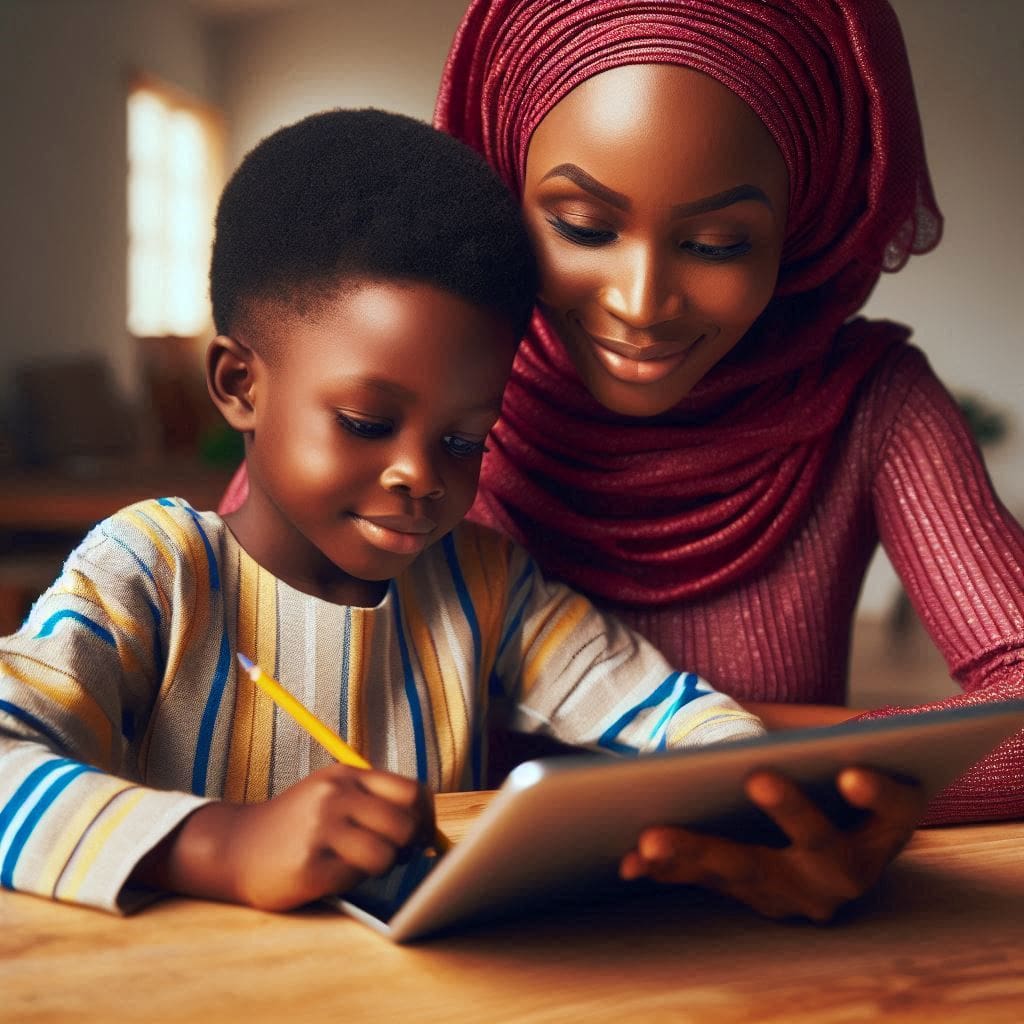Parenting in Nigeria is different from what it used to be over the years, as the transformation of the society into a globalized world have influenced the ways that parents are expected to raise their children.
This new style of parenting seems to be a bit challenging for a Nigerian parent who is used to a traditional lifestyle encompasses parenting culture.
Nigeria has a rich cultural heritage, where strong family values are very important. This affects how parents raise their children, with a focus on respecting elders, taking responsibility for the community, and setting clear expectations.

But things are changing, and more modern ways of parenting are becoming popular. Nigerian parents today face the challenge of raising well-rounded children in a world that embraces both tradition and modernity.
This guide explores effective strategies for navigating this exciting yet complex terrain.
Understanding Traditional Parenting in Nigeria
Traditional Nigerian parenting can be characterized by the following core principles:
- Respect for Elders: Children are taught to revere elders, addressing them with titles and seeking their guidance. This fosters a sense of community and belonging.
- Communal Upbringing: The proverb “It takes a village to raise a child” perfectly encapsulates the traditional approach. Extended family members play a significant role in childcare and discipline, offering a strong support network.
- Emphasis on Discipline: Discipline is considered crucial for molding responsible adults. Traditional methods may involve corporal punishment, but the ultimate goal is to instill respect and good character.
- Gender Roles: Traditionally, clear gender roles exist. Boys are expected to be strong and assertive, while girls are groomed for domesticity and nurturing.
Strengths of Traditional Parenting:
- Strong Family Values: Traditional methods promote a strong sense of family unity and belonging.
- Cultural Identity: Children are grounded in their cultural heritage, fostering pride and a sense of self.
- Respect for Authority: Respect for elders translates to a broader respect for authority figures, creating a more stable society.
Challenges of Traditional Parenting:
- Limited Open Communication: Strict hierarchies may inhibit open communication between parents and children.
- Corporal Punishment: Physical discipline can be counterproductive, leading to fear and resentment.
- Rigid Gender Roles: Rigid gender expectations may limit opportunities for both boys and girls.
Modern Parenting Approaches and their Relevance in Nigeria
Modern parenting styles emphasize:
- Open Communication: Parents encourage children to express themselves freely, fostering a strong parent-child bond.
- Individuality: Children are encouraged to explore their interests and develop their unique personalities.
- Positive Reinforcement: Emphasis is placed on positive reinforcement and open communication over harsh punishment.
- Gender Equality: Modern approaches promote equal opportunities and encourage children to break free from rigid gender roles.
Benefits of Modern Parenting:
- Stronger Parent-Child Bond: Open communication fosters trust and understanding between parents and children.
- Empowered Children: Children become more confident and self-assured when encouraged to express themselves.
- Adaptability: Modern approaches equip children with skills to navigate the complexities of the modern world.

Challenges of Modern Parenting:
- Clash with Tradition: Modern methods may clash with traditional values, creating confusion for both parents and children.
- Overindulgence: Permissiveness can lead to a lack of discipline and respect for boundaries.
- Navigating Technology: Balancing screen time and technology exposure with traditional values can be tricky.
Effective Strategies for Striking the Perfect Balance in Parenting in Nigeria
There’s no “one-size-fits-all” approach to parenting in Nigeria. The key lies in striking a balance between the best aspects of both traditional and modern styles. Here are some tips for Nigerian parents:
- Open Communication is Key: Encourage your children to express themselves openly. Listen actively and create a safe space for honest discussions.
- Embrace Cultural Identity: Help your children understand and appreciate their cultural heritage while preparing them for a globalized world.
- Modernize Discipline: Move away from corporal punishment and embrace positive reinforcement techniques like rewards and praise.
- Promote Gender Equality: Instill values of respect and encourage both sons and daughters to pursue their dreams regardless of gender stereotypes.
- Technology with Boundaries: Set clear guidelines around screen time and technology use while leveraging technology for educational purposes.
- Village Still Matters: While fostering open communication with your children, involve extended family in healthy ways, leveraging their experience and support.
Additional Considerations:
- Mental Health Awareness: Mental health issues are becoming increasingly common. Be attentive to your child’s emotional well-being and seek professional help if needed.
- Education and Cultural Expectations: Balance your child’s education with important cultural values and obligations.
- Role of Religion: Religion plays a significant role in shaping Nigerian society. Integrate religious teachings into your parenting style while promoting tolerance and understanding.
Remember:
- There will be bumps along the road. Be patient, consistent, and adjust your approach as needed.
- Celebrate your unique parenting style. You are raising your children in a dynamic and ever-changing world, drawing from the wisdom of your heritage and the tools of the modern age.
Resources for Nigerian Parents:
- Parenting Workshops and Support Groups: Look for local organizations or online resources that offer parenting workshops and support groups tailored to the Nigerian context.
- Books and Articles on Nigerian Parenting: Explore books and articles written by Nigerian parenting experts who understand the unique challenges and opportunities faced by Nigerian families.
- Online Forums and Communities: Join online forums and communities specifically for Nigerian parents. These platforms allow you to connect with other parents, share experiences, and learn from each other.
Conclusion:

Parenting in Nigeria is a beautiful journey, filled with both challenges and rewards. By embracing the strengths of both traditional and modern approaches, Nigerian parents can raise well-rounded, confident, and culturally aware children who are prepared to thrive in the 21st century.
Remember, the most important ingredient is love, patience, and a genuine desire to see your child flourish.



